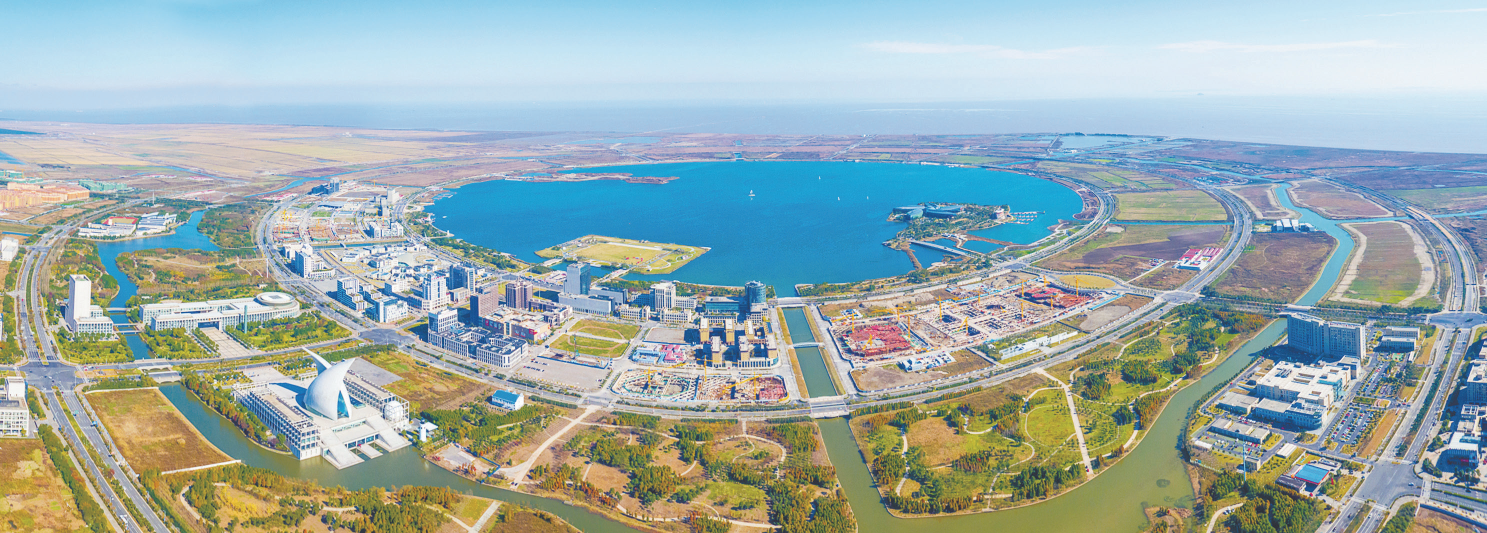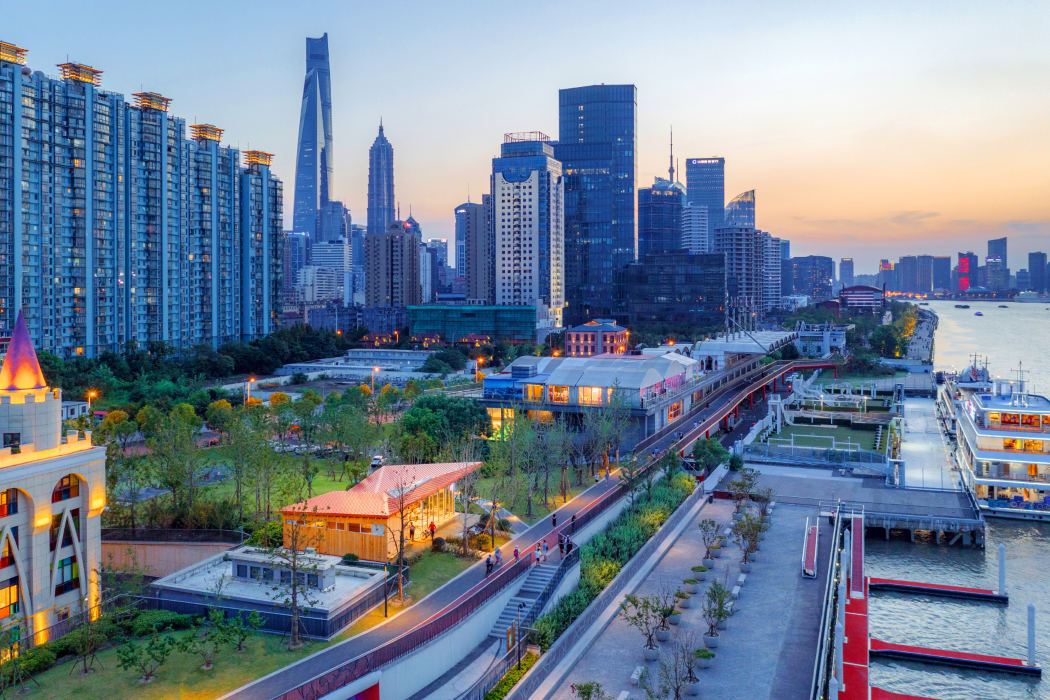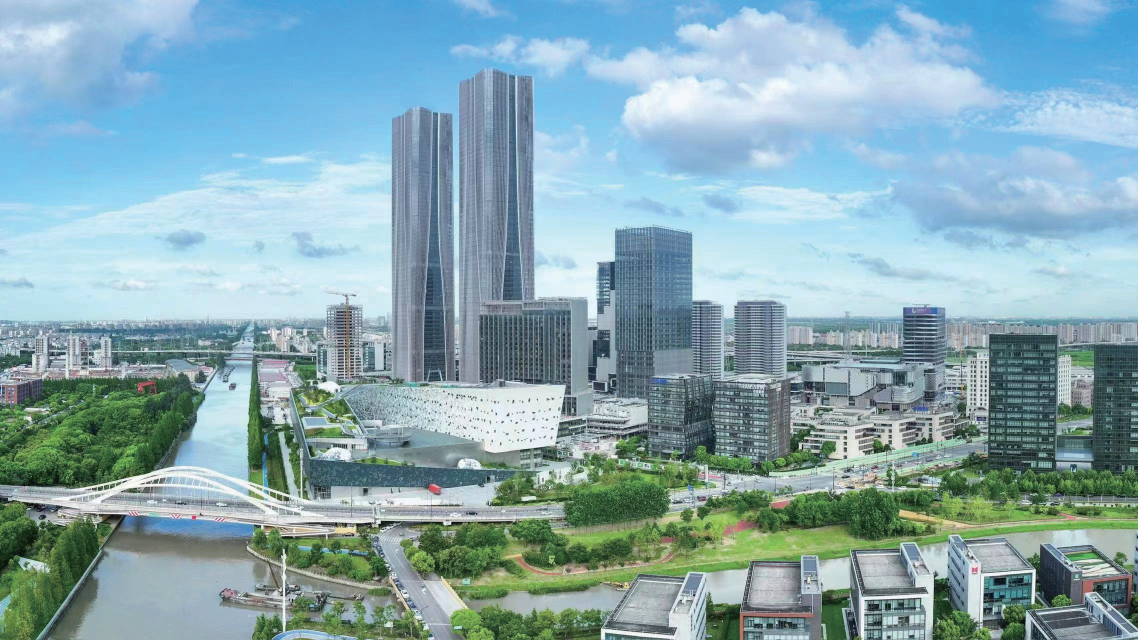April 18, 2025 was the 35th anniversary of Pudong's development. This frontier of China's reform is using institutional innovation to solve the shortcomings of enterprises and industries, and explore new paths for China's continued communication with the outside world.
Not long ago, two old Volvo hydraulic pumps were transported from Pudong International Airport to the remanufacturing workshop of Volvo Construction Equipment (China) Co., Ltd. This was the first bonded remanufacturing business outside the customs special supervision area in the country in Pudong, and also meant the start of the "bonded remanufacturing 2.0" era.

Bonded remanufacturing refers to the transportation of old foreign parts to domestic factories in a duty-free manner for disassembly and inspection in accordance with strict quality standards, and the assembly of the usable parts and new parts into remanufactured products, which are then shipped abroad for reuse. Compared with bonded maintenance, bonded remanufacturing has higher technical requirements, and the performance of the finished product is no less than that of a new product; at the same time, the benefits are more significant, and the cost and raw material consumption is greatly reduced by reusing parts. "Spend 50% of the money, save 40% on energy consumption, recycle 70% of materials, and reduce 80% of pollution - this is the '5678' rule of remanufacturing." Chen Chaoping, vice president of service and accessories at Volvo Construction Equipment (China) Co., Ltd., said.
Developing bonded remanufacturing is not only in line with the development of the circular economy and China's "dual carbon" strategy requirements, but also an important measure to promote the high-quality development of China's manufacturing industry in the direction of green and low-carbon. In the past, remanufactured products were classified as old electromechanical products, so some remanufactured products were included in the prohibited import catalog and could not pass customs normally. In response to this issue, Pudong relied on institutional innovation to open up a new path for the pilot import of remanufactured products in key industries. Volvo Construction Equipment (China) Co., Ltd. has become the first pilot enterprise in the country in this field.

Chen Chaoping said that bonded remanufacturing is the core link of Volvo Construction Equipment's global strategy. Currently, only Pudong has a remanufacturing base that meets standards in the Asia-Pacific region. The new breakthrough in bonded remanufacturing has effectively strengthened the functional positioning of the base as a regional industrial hub. After bonded remanufacturing businesses outside the customs special supervision area are opened, it is expected that more types of engineering machinery will enter Shanghai from all over the world for "re-manufacturing" in the future.
Similarly, through cross-departmental collaborative supervision and facilitation of customs clearance for special items, Pudong has solved the problem of cross-border flow of cell therapy products and explored a new way for cell therapy products to travel overseas.
In March 2025, a lymphoma patient received an injection of Fosun Kerry's CAR-T cell therapy drug in a Hong Kong hospital. This is the first cross-border transportation and use of CAR-T cell drugs in the country, and it is also an important achievement of Shanghai's first joint supervision mechanism for the entry and exit of special biomedical items.
CAR-T cell therapy is an innovative cancer treatment method - by collecting the patient's own T cells, after in vitro transformation and amplification, they are re-injected into the patient's body to accurately identify and attack cancer cells. However, this therapy has extremely strict temperature and time requirements for the transportation of blood samples and finished products, and the entry and exit chain involves multiple departments.
In order to promote the international innovation and coordinated development of the biopharmaceutical industry, Pudong took the lead in piloting the establishment of a joint supervision mechanism for the entry and exit of special biopharmaceutical items, and formulated management measures to promote the transformation of the "white list" pilot to conditional pilot management.

Chen Xingrong, CEO of Fosun Kerry, said that the joint supervision mechanism for the entry and exit of special biopharmaceutical items provides an efficient and safe solution for the cross-border transportation and supervision of cell therapy products, and also opens up a new path for cooperation between the mainland and Hong Kong in the field of biopharmaceuticals.
For 35 years, Pudong has continued to transform corporate needs into institutional supply and promote the deep connection between innovative practices and international standards. "Pudong will bravely serve as a pioneer in the new era of reform and development, expanding the high-level opening process, exploring the way to build a new development pattern, and empowering high-quality development,” said Wu Jincheng, mayor of Shanghai Pudong New Area. (End)